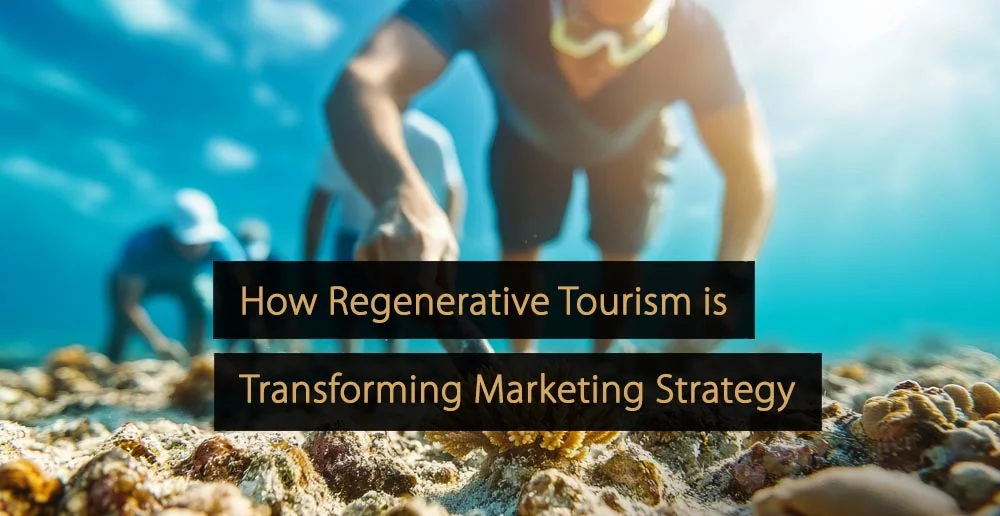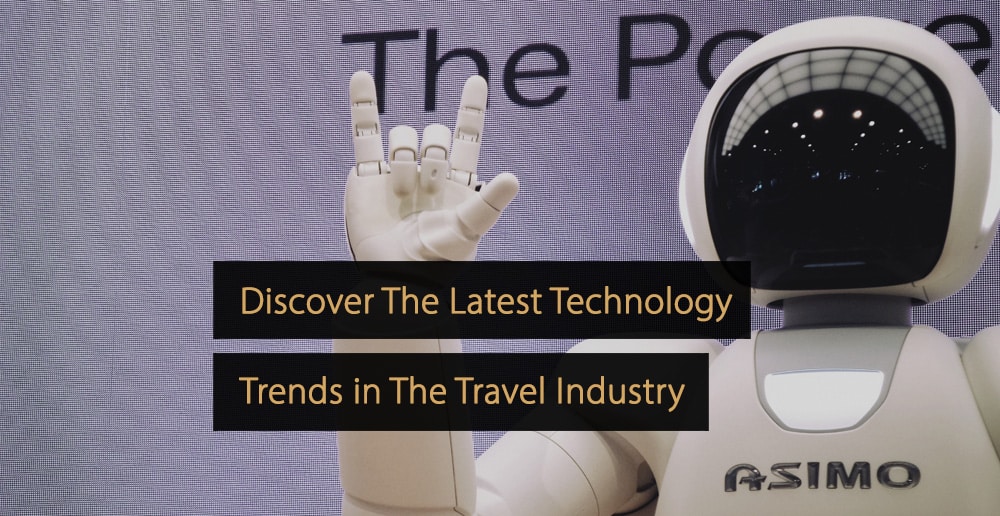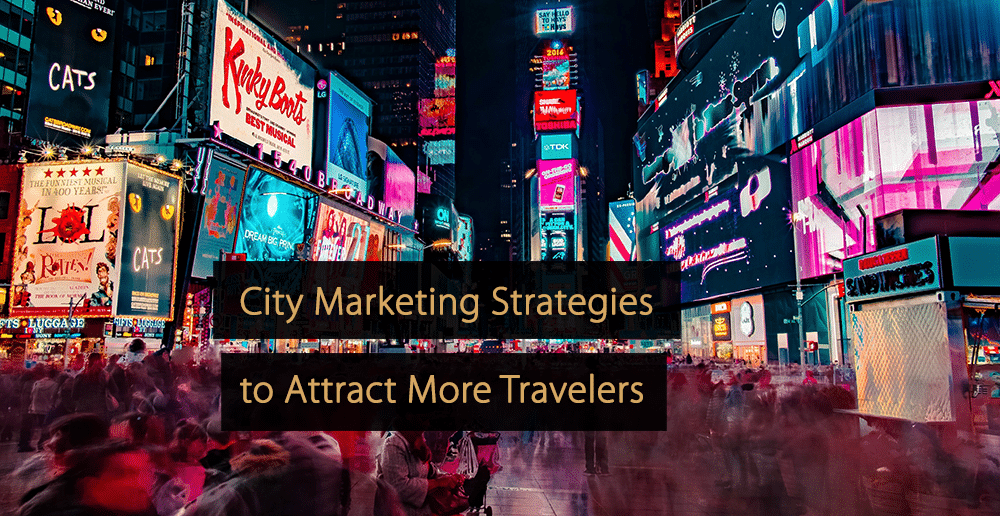The shift towards regenerative tourism represents a significant opportunity for hotels to differentiate themselves in a crowded market while contributing positively to the greater good. By effectively marketing these initiatives, hotels can attract conscious travelers, enhance their brand reputation, and play an important role in shaping the future of tourism.
Rising Demand for Travel That Gives Back: Regenerative Tourism
In recent years, the hospitality industry has witnessed a significant shift in consumer preferences and market demands. Travelers are increasingly seeking experiences that not only minimize negative environmental impacts but actively contribute to the well-being of local communities and ecosystems.
This evolving consciousness has given rise to a new paradigm in the tourism sector: regenerative tourism. Forward-thinking hotels and resorts are not merely adapting to this trend; they’re championing it and including regenerative tourism as a cornerstone of their marketing strategies.
The Evolution of Sustainable to Regenerative Tourism
Sustainable tourism has been a buzzphrase in the industry for decades, focusing primarily on reducing the negative impacts of travel on the environment. While this approach has yielded positive results, it often falls short of addressing the broader issues facing destinations and local communities. Enter regenerative tourism, a concept that goes beyond simple sustainability to actively improve and revitalize the places and communities that tourists visit.
Regenerative tourism seeks to leave a destination better than it was found. This approach involves not just preserving natural resources and cultural heritage but actively enhancing them. Hotels embracing this philosophy are reimagining their role in the tourism ecosystem, positioning themselves as stewards of their local environments and communities rather than mere service providers.
Marketing Regenerative Initiatives: Storytelling with Purpose
Hotels that have embraced regenerative tourism are finding innovative ways to incorporate these efforts into their marketing strategies. The key lies in authentic storytelling that resonates with conscious travelers. These marketing narratives go beyond simply listing eco-sensitive practices on a property’s website; they weave compelling stories of positive impact and transformation.
One effective approach is to showcase specific projects and their outcomes. For instance, a coastal resort might highlight its coral reef restoration program, detailing the process, the marine life it has attracted, and how guests can participate. This not only demonstrates the hotel’s commitment to environmental stewardship but also offers guests a unique and meaningful experience.
Another powerful marketing tactic is to spotlight collaborations with local communities. Hotels might feature stories of local artisans whose crafts are showcased in guest rooms, or highlight farm-to-table initiatives that support nearby small-scale farmers. These narratives create an emotional connection with potential guests, appealing to their desire to travel more responsibly and make a positive impact.
Regenerative initiatives inherently become part of a hotel team’s ethos, and ultimately offer an opportunity to showcase their efforts proudly in perpetuity.
Leveraging Digital Platforms for Maximum Reach
In the digital age, hotels have a plethora of platforms at their disposal to share their regenerative tourism initiatives. Social media channels like Instagram and Facebook are particularly effective for visual storytelling, allowing hotels to share stunning imagery of their efforts alongside impactful captions that educate and inspire.
Many hotels are also utilizing their websites to create dedicated sections that delve deep into their regenerative efforts. These pages often include interactive elements such as virtual tours of green projects, video interviews with local community members, and real-time updates on the progress of various initiatives.
Influencer partnerships have also proven to be a powerful tool in spreading the message of regenerative tourism. By collaborating with eco-conscious travel influencers and content creators, hotels can reach a wider audience of like-minded travelers who are actively seeking net-positive travel options.
Transparency and Authenticity: The Cornerstones of Effective Marketing
In an era where consumers are increasingly savvy and skeptical of greenwashing, transparency and authenticity are paramount in marketing regenerative tourism initiatives. Hotels must be prepared to back up their claims with concrete data and third-party verifications.
Many establishments are publishing annual sustainability reports that detail their environmental and social impact, including metrics on energy and water consumption, waste reduction, and community investment. Some are going a step further by obtaining certifications from respected organizations like EarthCheck or Green Globe, which adds credibility to their sustainability claims.
It’s also crucial for hotels to acknowledge that the journey towards regenerative tourism is ongoing and often imperfect. Marketing communications that honestly address challenges and setbacks can actually enhance a hotel’s credibility, demonstrating a genuine commitment to continuous improvement.
Educating and Engaging Guests
A key aspect of marketing regenerative tourism is educating guests about the importance of these initiatives and how they can participate. Many hotels are incorporating educational elements into the guest experience, turning their properties into living laboratories of sustainability.
For example, some resorts offer guided nature walks that highlight local conservation efforts, while others provide hands-on workshops in traditional crafts or sustainable farming practices. These experiences not only enrich the guest’s stay but also create powerful word-of-mouth marketing as visitors share their unique experiences with friends and on social media.
Some innovative hotels are even gamifying sustainability, offering rewards or recognition to guests who participate in eco-friendly practices during their stay. This not only encourages positive behavior but also creates a sense of shared purpose between the hotel and its guests.
The Business Case for Marketing Regenerative Tourism
While the primary motivation for embracing regenerative tourism should be ethical and environmental, there’s a strong business case for this approach as well. A 2021 Booking.com sustainable travel report found that 83% of global travelers think sustainable travel is vital, with 61% saying the pandemic has made them want to travel more sustainably in the future.
Hotels that effectively communicate their regenerative initiatives can tap into this growing market of conscious travelers. Moreover, these efforts often lead to cost savings through improved resource efficiency and can enhance a hotel’s reputation, leading to increased customer loyalty and positive reviews.
Challenges and Future Outlook
Despite the clear benefits, marketing regenerative tourism initiatives comes with its challenges. One of the primary hurdles is the additional cost often associated with such practices. Hotels must find ways to balance these investments with their bottom line, potentially by demonstrating the long-term financial benefits of such approaches.
Another challenge lies in measuring and quantifying the impact of regenerative efforts. While some metrics, like energy savings or waste reduction, are relatively straightforward to track, others, such as biodiversity improvement or community well-being, can be more complex to measure and communicate effectively.
Looking to the future, we can expect to see regenerative tourism become increasingly mainstream. As more hotels adopt these practices and refine their marketing strategies, those who fail to embrace this shift may find themselves left behind. We may also see the emergence of new technologies that make it easier to track and communicate the impact of regenerative initiatives, further enhancing marketing efforts in this space.
In the years ahead, the most successful hotels will be those that can authentically integrate regenerative practices into every aspect of their operations and effectively communicate these efforts to potential guests. In doing so, they not only secure their own future but also contribute to the preservation and enhancement of the destinations we love to explore.
Free Hotel Case Study: How Marketing Personalization Motivates Travelers and Drives Bookings for Hotels
In this compact case study, you’ll find data showing the importance of marketing personalization to the average traveler. Download the case study to learn how any hotel with a digital footprint can use marketing personalization to increase conversions.
Click here to download the case study “How Marketing Personalization Motivates Travelers and Drives Bookings for Hotels”.
More Tips to Grow Your Business
Revfine.com is the leading knowledge platform for the hospitality and travel industry. Professionals use our insights, strategies, and actionable tips to get inspired, optimize revenue, innovate processes, and improve customer experience.Explore expert advice on management, marketing, revenue management, operations, software, and technology in our dedicated Hotel, Hospitality, and Travel & Tourism categories.










Leave A Comment